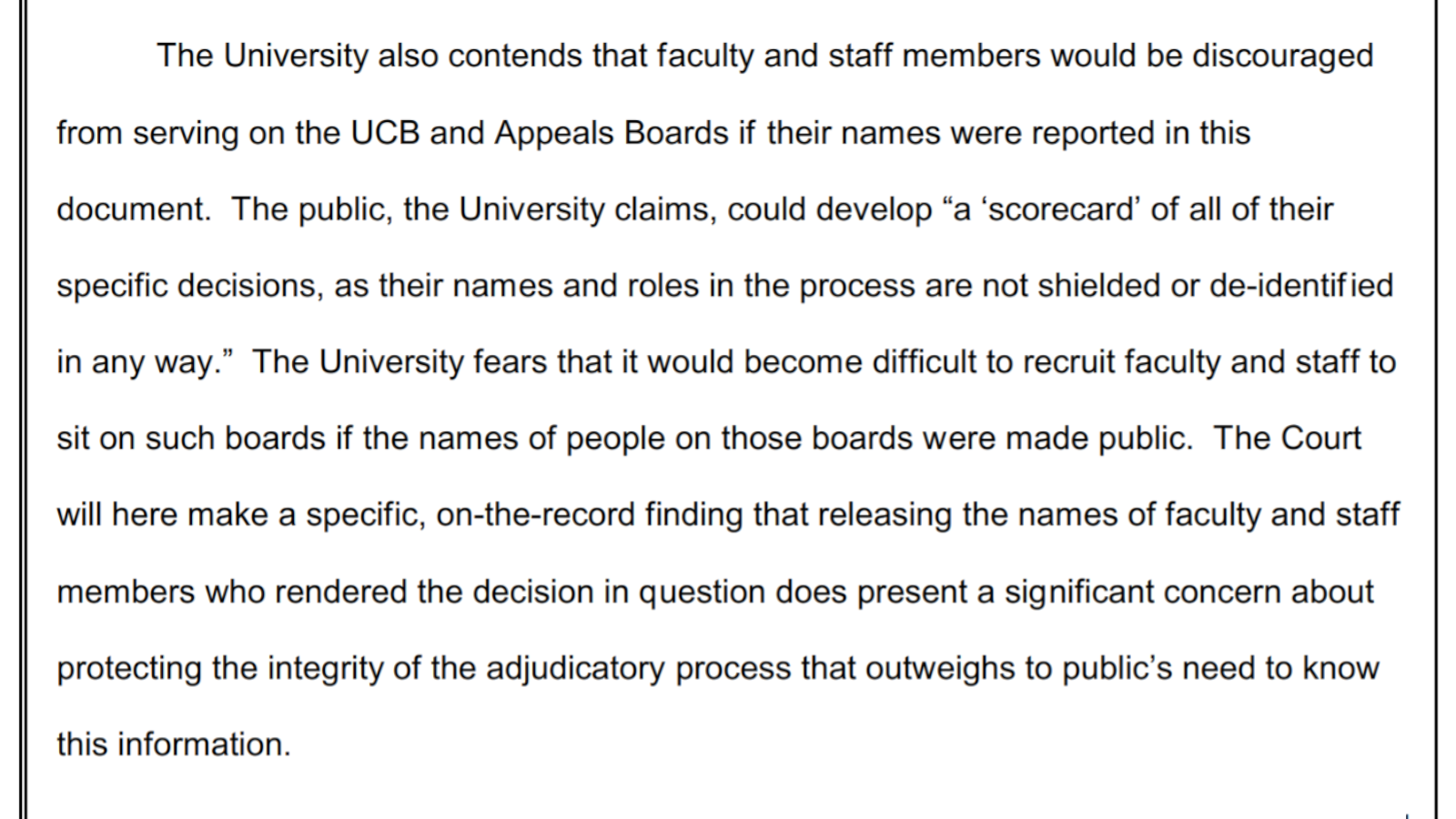
While schools, accuser advocates, etc., often argue the names of those accused of sexual assault should be public information, they demand privacy for the names of faculty and staff who act as decision-makers in their cases. Example: the recent decision in Doe v. Syracuse University.
In a 45-page ruling granting and denying summary judgment, Judge Thomas McAvoy also ruled that the newspaper Daily Orange may access previously sealed documents – so long as the names of faculty and staff who acted as decision-makers in the student disciplinary hearing are redacted.
Case updated in our Title IX Lawsuit Database.
Thank You for Reading
If you like what you have read, feel free to sign up for our newsletter here:
About the Author
Related Posts

While schools, accuser advocates, etc., often argue the names of those accused of sexual assault should be public information, they demand privacy for the names of faculty and staff who act as decision-makers in their cases. Example: the recent decision in Doe v. Syracuse University.
In a 45-page ruling granting and denying summary judgment, Judge Thomas McAvoy also ruled that the newspaper Daily Orange may access previously sealed documents – so long as the names of faculty and staff who acted as decision-makers in the student disciplinary hearing are redacted.
Case updated in our Title IX Lawsuit Database.
Thank You for Reading
If you like what you have read, feel free to sign up for our newsletter here:
About the Author
Related Posts
More from Title IX for All
Accused Students Database
Research due process and similar lawsuits by students accused of Title IX violations (sexual assault, harassment, dating violence, stalking, etc.) in higher education.
OCR Resolutions Database
Research resolved Title IX investigations of K-12 and postsecondary institutions by the Department of Education’s Office for Civil Rights (OCR).
Attorneys Directory
A basic directory for looking up Title IX attorneys, most of whom have represented parties in litigation by accused students.






